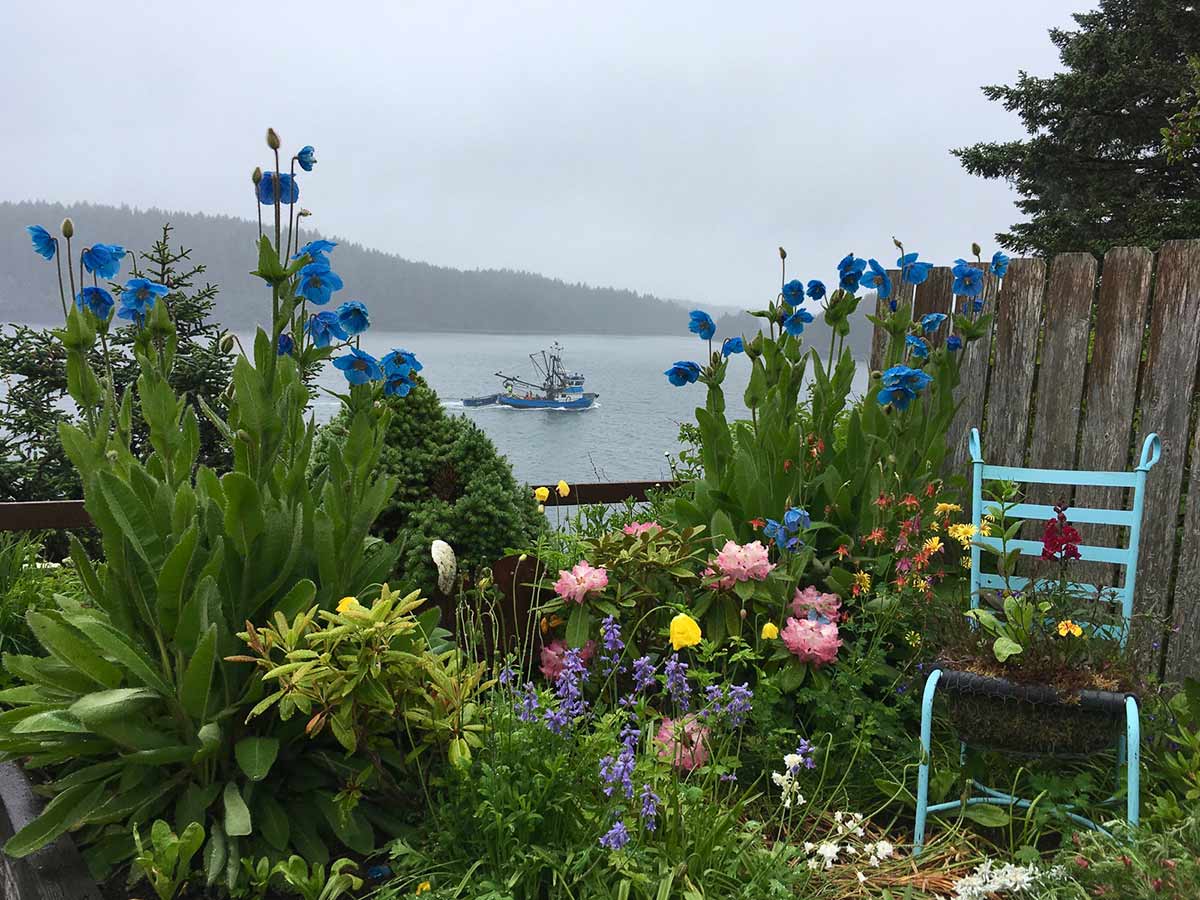
Organic Gardening Tips
Organic Gardening Tips • Cool Climate Gardening
I was working as a crew member aboard a tugboat that delivered fuel to ports around Alaska, when the desire to start a vegetable garden hit me. So I did. Years later, I was inspired to share my organic gardening tips, learned from hands-on experience with cool climate gardening. Wait a sec… I’m getting ahead of myself.
I’d been standing outside on the main deck, leaning on the railing and sipping coffee. The air smelled of diesel, sweat, and spruce trees. I looked up and thought, “No more going to sea and missing the changing seasons.” An eagle flew by. I wanted a hot shower.
It was 1985 and I’d moved from Seattle to Kodiak the year before. I felt at home on Kodiak Island. Pink fireweed, sea otters, cappuccinos, potlucks, northern lights, and air so fresh my sinuses rejoiced. I could see stars at night. And the people, friendly and welcoming.
My muse was broken with a question to self, “Then what would you rather be doing?”
Two words instantly popped into my head. “Photography and gardening.”
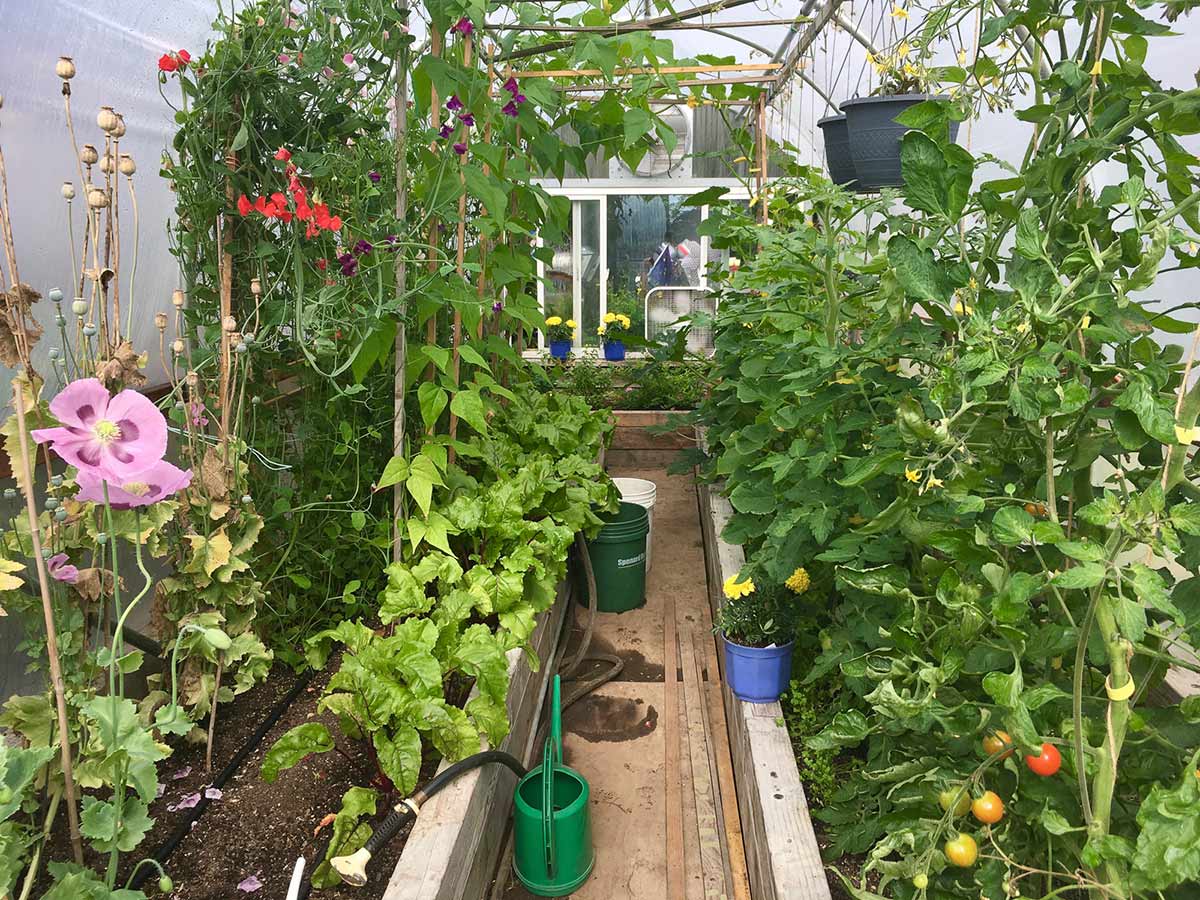
“Photography” felt right, for I’d been taking pictures since I was ten. But gardening? The inner critic stepped in. “That’s so stupid, you can’t make a living at that, it’ll never work, it’s not important enough, you don’t know the first thing about growing vegetables,” and so on.
True, I didn’t know a human bean from a green bean, but it didn’t stop me. I went to the library (this was pre-Google) and checked out every book I could find about cool climate gardening.
I made my first compost pile from leaves, grass and kelp. I grew broccoli seedlings under lights in the garage. I ate my own, home-grown veggies. During my first harvest, I felt like I had money in the bank. I was in love with the process of growing things.
Besides, plants don’t care if you’re having a bad hair day.
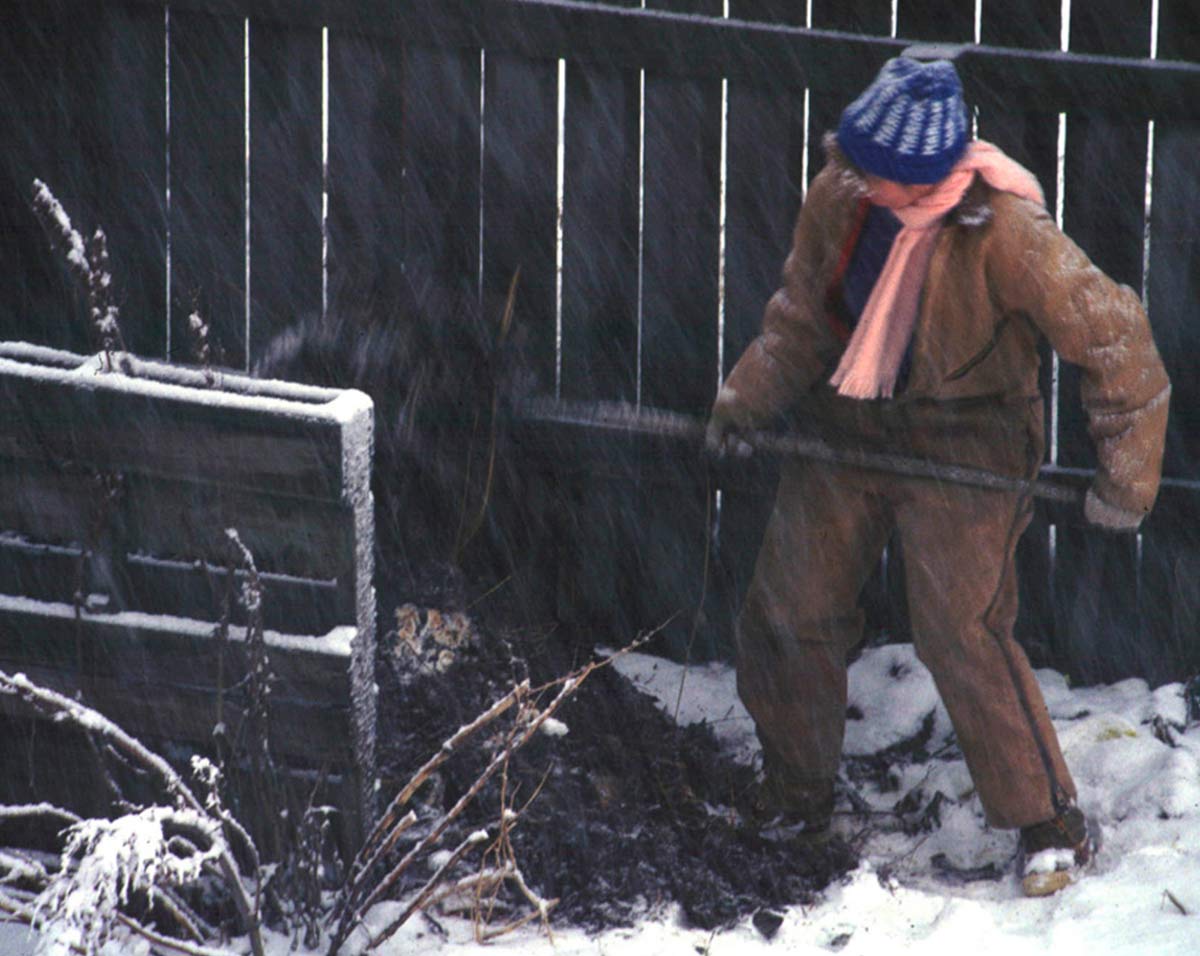
I went on to write bulletins for the Cooperative Extension Service, speak at garden conferences and trade shows and co-authored the bestseller, Chicken Soup for the Gardener’s Soul. I also launched a weekly garden column. That was over 20 years ago. I figured that what I was learning, in the trenches, might be helpful to others.
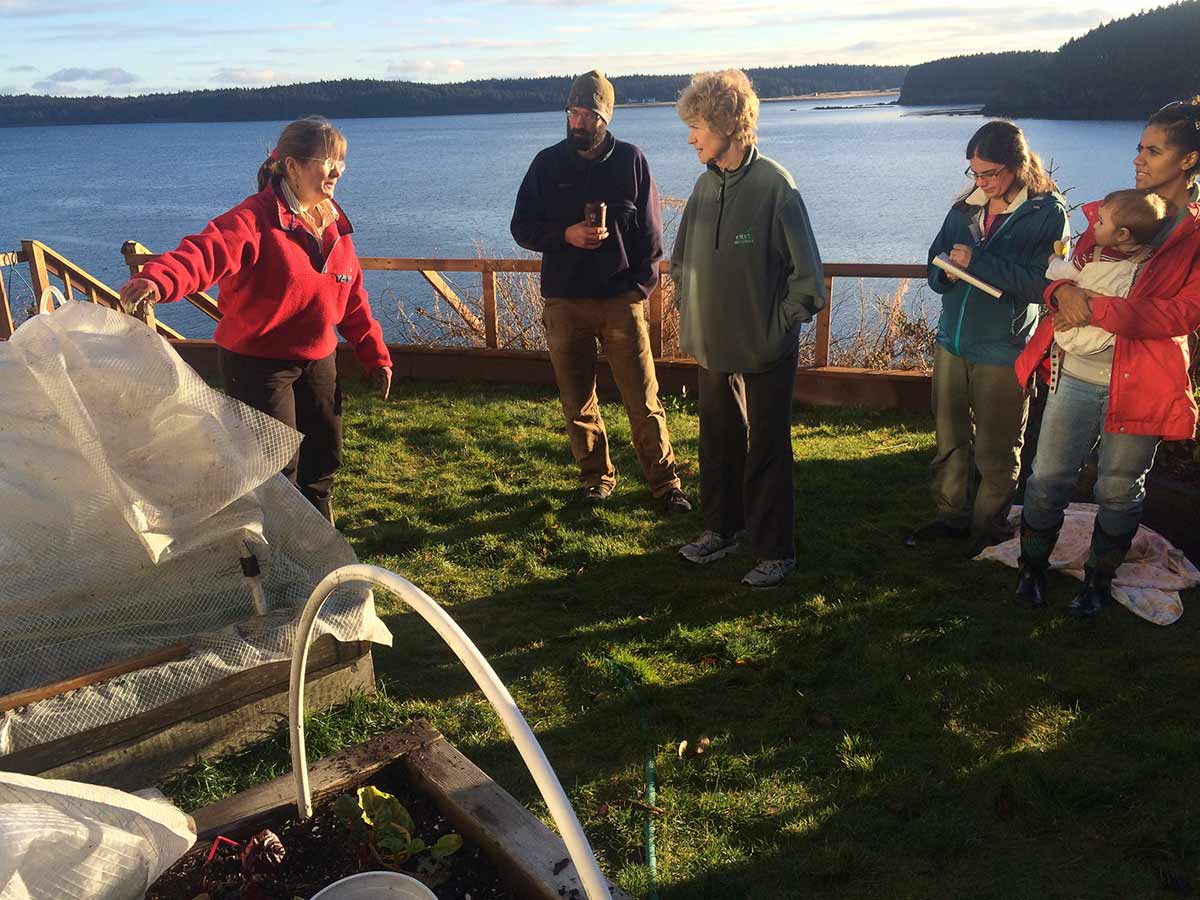
Believe in the tenacity of plants. “Plants want to survive and live,” reminds Amy Pennington, author of Apartment Gardening. “They will go to great lengths to make sure their genetic strain lives on. They don’t need constant monitoring—they just need a helper.”
Take better care of indoor plants. It’s the least we can do for the greenery that graciously brightens the interiors of our homes, hospitals and offices.
Memorize the names of more wildflowers. After a little practice, they will become familiar friends.
Collect kitchen scraps for making compost or vegetable broth. “Compost,” says New York Timesgarden columnist Leslie Land, “is the all-purpose answer to everything.” Vegetable trimmings, thrown in a pot of water, makes an excellent, nutrient-rich soup stock.
Allow nature to soothe and rejuvenate by spending more time in the garden. In our hectic world it’s too easy to think of gardening as just another task on the to-do list. As corny as it may sound, take time to smell the roses.
Embrace your own people-plant connection. Why are we so uplifted by flowers? What compels us to behave like lemmings, massing along roads and hiking trails to immerse ourselves in nature? And what draws us so powerfully to savor scenic overlooks? (Highway engineers and national park planners acknowledge this urge). Our ties to the natural world of plants are subtle and often overlooked.
Charles Lewis, author of the marvelous and pathmaking book Green Nature, Human Nature, describes the positive influences that nature can have on humanity. It’s so much more than how plants provide us with food, clothing, and flowers…
“When people who garden find new friendships with neighbors, when a walk in the woods brings relief from pent-up tension, or when a potted begonia restores vitality to a hospital patient, we can begin to sense the power of these connections.”
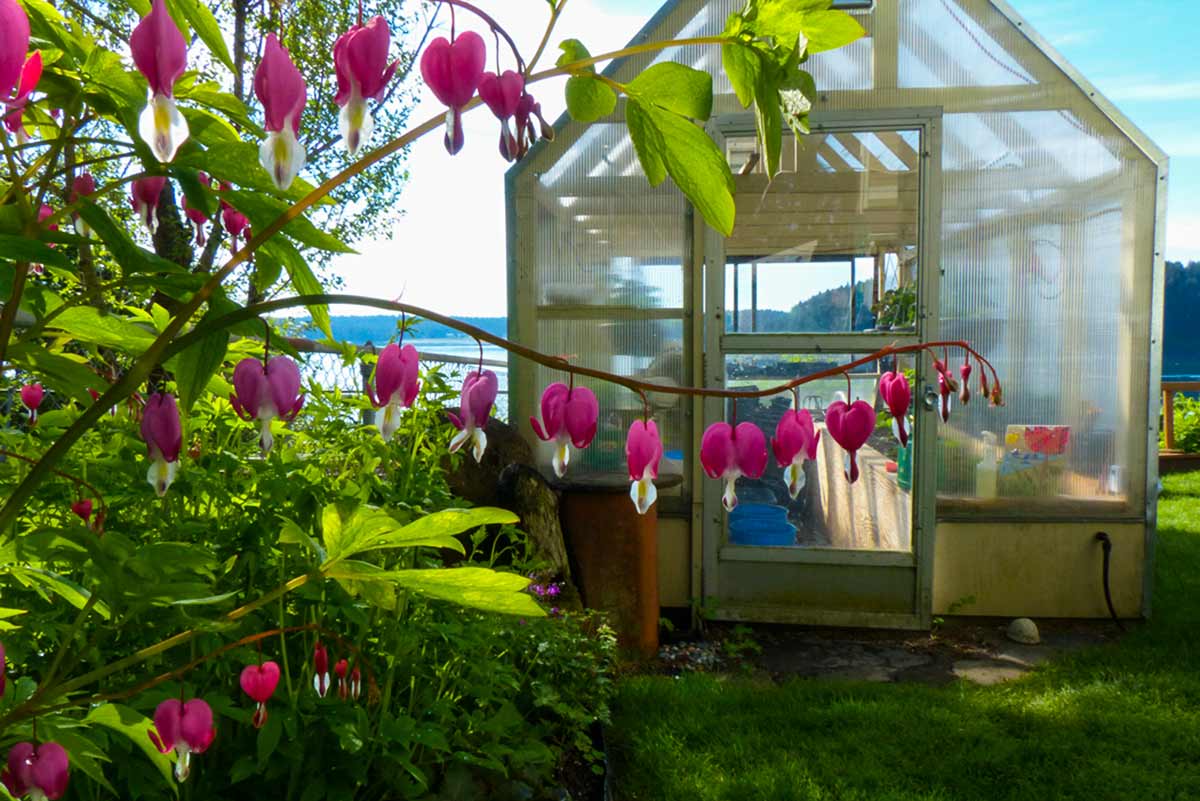
For more about some of Marion’s favorite topics: